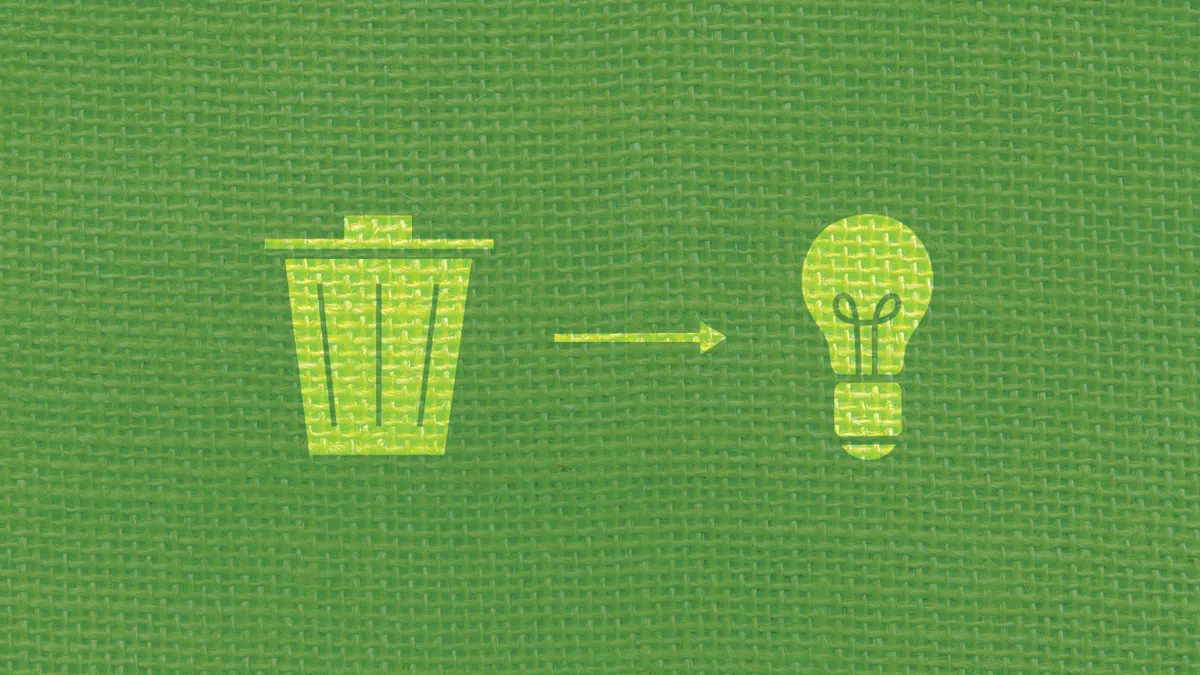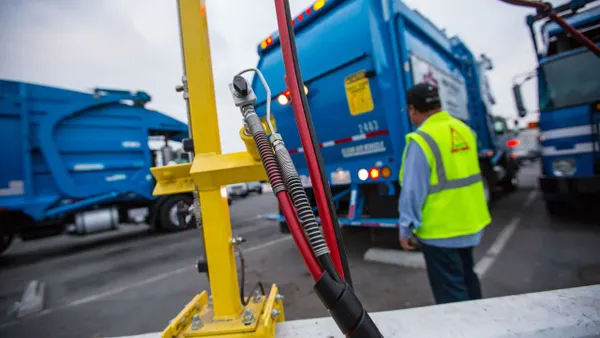Dive Brief:
- Reps. Elise Stefanik, R-N.Y. and Scott Peters, D-Calif. have introduced the Renewable Electricity Tax Credit Equalization Act (H.R. 4186), which would extend and modify tax credits for qualifying renewable energy technologies — including biomass, WTE, hydropower, marine energy and biogas.
- The bill, which has been referred to the House Committee on Ways and Means, would reinstate the production tax credit (PTC) back to its December 2017 expiration and extend both the PTC and investment tax credit (ITC) for qualifying projects that commenced construction before 2025. It would also eliminate the current 50% PTC reduction for these technologies.
- "Unfair tax policies have hampered efforts to work toward a clean energy future for far too long, and I'm proud to lead the effort to ensure equal treatment from the government within renewable energy production," Stefanik said in a statement.
Dive Insight:
The PTC's enduring cycle of expiration and retroactive reinstatement – typically for one to two years at a time – has long hindered meaningful WTE, biomass, biogas and hydropower infrastructure development, Energy Recovery Council President Ted Michaels told Waste Dive.
"If you're trying to line up funding and you're relying on the tax credit, the lender will want to know that the tax credit will be available to you," explained Michaels. "When it's only available for very short windows at a time, it doesn't give much confidence to lenders."
H.R. 4186, Michaels said, "provides a larger window than we've had in a long time" – and notably applies to both new constructions and expansions of private facilities.
"That's why we haven't really been able to use the tax credit – because the facilities that have been built or facilities that have been expanded in last 10-12 years have all been owned by local government," he said. "What this really has the opportunity to do is drive investment in privately-owned facilities."
While incinerators have been subject to both public controversy and government pushback in recent months, Covanta and Wheelabrator project growing domestic interest in WTE. The bill's proposed amendments could help spur more of that necessary infrastructure development, according to Michael Van Brunt, Covanta's senior director of sustainability.
Earlier extensions, he told Waste Dive, were too short for the company to capitalize on – "so we greatly appreciate the bill's recognition of the need for a longer extension of the production tax credit, which helps level the playing field for baseload renewables."
Patrick Serfass, executive director of the American Biogas Council, noted that the "opportunity to build more biogas systems in the U.S. is huge" – and that the only two paths toward expanded organics processing infrastructure are biogas and composting.
"They work in complementary ways, but where you have larger volumes, biogas makes more sense, and with smaller volumes, composting makes more sense," he told Waste Dive. "You have to incentivize both, and with biogas systems, you also get renewable energy – and we could certainly use that as well."
While Stefanik's 2017 attempt (H.R. 4137) to extend the credit stalled in committee, Serfass cited growing interest within Congress in enacting climate legislation as reason for optimism regarding this iteration's chances.
"The majority of Democrats and some Republicans all ran on climate change messaging, among other platforms," he said. "One of the best ways Congress has of doing climate change legislation this year is to extend renewable energy tax credits. It's resonated with members of the House, especially Democrats – but many Republicans as well."
At the very least, Michaels noted, the bill has a good chance of being considered as part of a larger package of tax credit extenders.
The bill comes at a time of unprecedented federal focus on upstream and downstream organic waste reduction. The recently passed Farm Bill grants a collective $125 million to food waste reduction and composting programs, and a new bipartisan bill (H.R. 3744) is seeking to create a new 30% ITC for qualifying biogas and nutrient recovery projects.
Incineration's status as a renewable energy source, however, remains contentious.
DC's ambitious Clean Energy Act excludes WTE as a renewable energy source, while pressure from California environmental groups helped stall a 2017 bill that would have granted incinerators renewable tax credits. Oregon lawmakers also amended the state's cap-and-trade bill in March to remove carbon cap exemptions previously granted to the Covanta Marion incinerator – an effort that may be supplanted by a Covanta-backed bill seeking to designate incineration as a green energy source.











